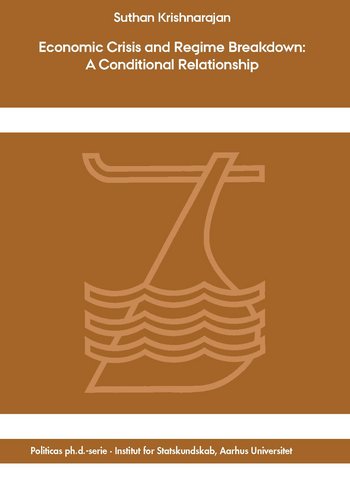Suthan Krishnarajan
Economic Crisis and Regime Breakdown: A Conditional Relationship

An extensive body of literature has studied the relationship between economic crisis and regime breakdown in democracies and autocracies. Yet empirical evidence remains mixed – both in the literature and in real-world instances. In this dissertation, I address this ambiguity by asking: What is the relationship between economic crisis and regime breakdown? In five separate papers, I scrutinize the entire process of economic crisis, regime dissatisfaction, regime challenge, and regime breakdown in democracies and autocracies. I do so by paying particular attention to typical issues of endogeneity in observational studies. The papers employ stronger and more valid measures of economic crisis; rely only on within-country variation; explicitly model temporal durations, shocks, and trends; consistently scrutinize the proposed causal mechanisms; and conduct additional tests that utilize exogenous variation in economic crises through instrumental variable (IV) estimation. The findings demonstrate how different types of economic crises have varying impacts, that economic slumps and inflation crises are particularly destabilizing, and that national elections and economic crises reinforce each other in exerting strong, lasting impacts on public regime dissatisfaction and the risk of regime challenges, respectively. Finally, bureaucratic quality is pivotal in protecting democracies against mass mobilization and regime breakdown during economic crises, while revenue from natural resources provides the same protection in crisis-ridden autocratic regimes. Given that these conditional factors have become prevalent around the world, scholars and policymakers should be aware of such conditions when assessing and managing regime instability in countries plagued by severe economic crisis today.
![]() Ophavsretten tilhører Politica. Materialet må ikke bruges eller distribueres i kommercielt øjemed.
Ophavsretten tilhører Politica. Materialet må ikke bruges eller distribueres i kommercielt øjemed.